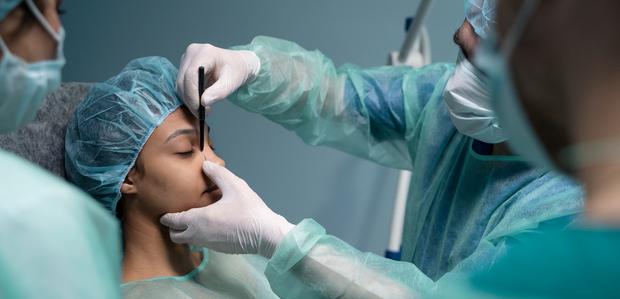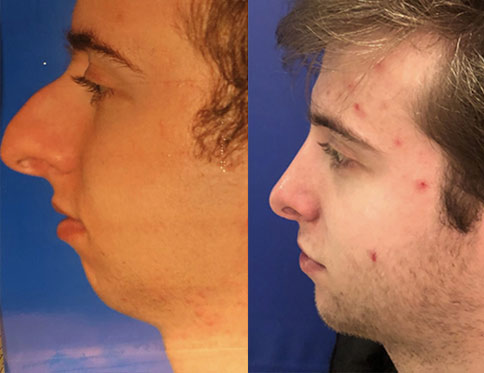Plastic Surgery Inland Empire: Achieve Your Dream Look with Expert Care
Plastic Surgery Inland Empire: Achieve Your Dream Look with Expert Care
Blog Article
Examining the Emotional and Social Aspects That Drive People to Think About Plastic Surgery as a Means of Enhancement
The decision to pursue cosmetic surgical treatment frequently extends beyond mere aesthetics, intertwining with emotional and social characteristics that merit comprehensive evaluation. Aspects such as self-worth, prevalent societal beauty criteria, and the pervasive influence of social media sites converge to shape individual inspirations for medical improvement. As these influences end up being progressively popular, comprehending the underlying cultural and psychological contexts is necessary. What stays to be checked out is the extensive impact these elements have not just on individuality yet additionally on wider social standards and values surrounding beauty and acceptance.
The Function of Self-confidence
Self-confidence significantly affects an individual's choice to pursue plastic surgery. People with reduced self-confidence usually view themselves in a negative light, leading to feelings of insufficiency concerning their physical look. This adverse self-perception can drive them to seek medical interventions as a method of improving their self-image. The need for enhancement in one's appearance is regularly connected to an idea that such modifications will elevate their general self-worth and self-confidence.

Eventually, the role of self-worth in the decision-making procedure regarding plastic surgery highlights the intricate interplay between body picture, personal complete satisfaction, and psychological health. Recognizing this partnership is essential for healthcare experts to make sure that individuals are making informed choices rooted in reasonable assumptions and emotional health.
Social Charm Criteria
Influenced by prevalent media portrayals and cultural narratives, social elegance requirements play an important role in forming individuals' perceptions of their very own bodies. These standards are frequently identified by an idyllic form of appeal that highlights traits such as slimness, proportion, and youthfulness. As these suitables are bolstered with different networks, consisting of tv, advertising, and film, people often internalize these messages, leading to dissatisfaction with their natural appearance.
The implications of these social norms prolong past aesthetic preferences; they can influence self-confidence, psychological wellness, and interpersonal partnerships. Individuals that perceive themselves as dropping brief of these requirements might experience feelings of inadequacy, prompting a need for cosmetic surgical procedure as a way of achieving societal authorization. This pursuit is typically sustained by the idea that adapting to these ideals will enhance not just physical look yet also social standing and personal satisfaction.

Impact of Social Media
The influence of social charm criteria is additional intensified by the surge of social networks systems, where curated photos and idyllic representations of elegance are ubiquitous. Users see it here are frequently exposed to filtered and edited pictures, which usually illustrate unattainable physical features. This exposure grows a society of contrast, leading individuals to analyze their very own look against these often impractical standards.
Social media site influencers and stars frequently promote cosmetic treatments, normalizing the notion that medical enhancements are a feasible ways for attaining social ideals (plastic surgery rancho cucamonga). The presence of these enhancements can develop an understanding that undertaking cosmetic surgery is a basic practice, therefore influencing individuals to consider comparable interventions as a path to enhanced self-esteem and social approval
Additionally, the interactive nature of social media allows for immediate responses through likes and comments, even more enhancing the wish to comply with prominent appeal standards. Such communications can worsen feelings of inadequacy and drive individuals towards cosmetic surgical procedure as a way of gaining validation. Ultimately, social media sites plays a critical role fit assumptions of beauty, which substantially impacts the decision-making processes surrounding plastic surgery.

Social Perspectives on Look
Throughout different societies, perceptions of look are deeply rooted in historic, social, and economic contexts, forming people' views on elegance and charm. In numerous cultures, appearance offers as he has a good point a considerable marker of identification, affecting social status, professional possibilities, and individual relationships. For example, in some societies, light skin is commonly linked with wealth and opportunity, while others might glorify darker skin tones as icons of stamina and credibility.
Additionally, typical charm standards are usually bolstered via social stories, media depictions, and household influences, bring about varying suitables across different regions (plastic surgery rancho cucamonga). In Western societies, the emphasis on young people and physical fitness commonly drives people towards cosmetic enhancement, while in certain Eastern societies, more subtle adjustments aligned with conventional appearances might be favored
Globalization and the spreading of electronic media have actually additionally complicated these characteristics, developing a hybridization of appeal suitables that transcends geographical boundaries. As individuals progressively navigate these social stories, the stress to comply with particular appearance criteria can bring about the need for cosmetic surgical treatment, mirroring a complicated interaction of cultural values and personal goals. Recognizing these cultural perspectives is important in resolving the motivations behind cosmetic surgical treatment considerations.
Emotional Effects of Plastic Surgery
Many individuals looking for plastic surgery record experiencing extensive psychological influences that can significantly modify their self-perception and psychological well-being - plastic surgery rancho cucamonga. The wish for physical improvement commonly originates from underlying issues such as low self-worth, body dysmorphic condition, or social stress relating to charm standards. For some, the prompt post-operative stage can lead to a temporary increase in confidence and fulfillment with their look, fostering a sense of empowerment
Nonetheless, these favorable feelings may not be withstanding. Research study shows that while some people experience boosted self-esteem, others may face heightened anxiety or depression if their expectations are not fulfilled. This discrepancy can emerge from impractical suitables bolstered by media representation and social stories surrounding elegance.
Moreover, the emotional implications of plastic surgery extend past the individual. Relationships with friends and family might be stressed as social dynamics shift, resulting in feelings of isolation or alienation. Eventually, the psychological effects of cosmetic surgery are intricate and complex, requiring mindful consideration by both possible patients and doctor to make certain enlightened decision-making and practical assumptions.
Conclusion
In final thought, the choice to pursue plastic surgery is considerably affected by a mix of self-esteem issues, societal elegance requirements, and social perspectives on look. The prevalent reach of social networks further exacerbates these stress, advertising impractical suitables that individuals usually strive to obtain. Comprehending these social and emotional variables is important for addressing the motivations behind cosmetic surgical procedure, highlighting the requirement for a more nuanced discussion surrounding elegance and self-acceptance you can try here in modern society.
The decision to pursue cosmetic surgical treatment frequently prolongs past simple looks, intertwining with social and emotional characteristics that warrant thorough exam. Ultimately, social media plays a crucial role in shaping understandings of charm, which dramatically influences the decision-making procedures surrounding cosmetic surgery.
As individuals progressively browse these social stories, the stress to conform to certain look criteria can lead to the wish for cosmetic surgical procedure, reflecting a complex interplay of cultural values and personal aspirations.In verdict, the decision to pursue cosmetic surgical treatment is dramatically affected by a mix of self-confidence issues, social appeal requirements, and social viewpoints on appearance. Comprehending these social and psychological elements is crucial for addressing the inspirations behind cosmetic surgery, highlighting the requirement for an extra nuanced conversation surrounding beauty and self-acceptance in contemporary society.
Report this page